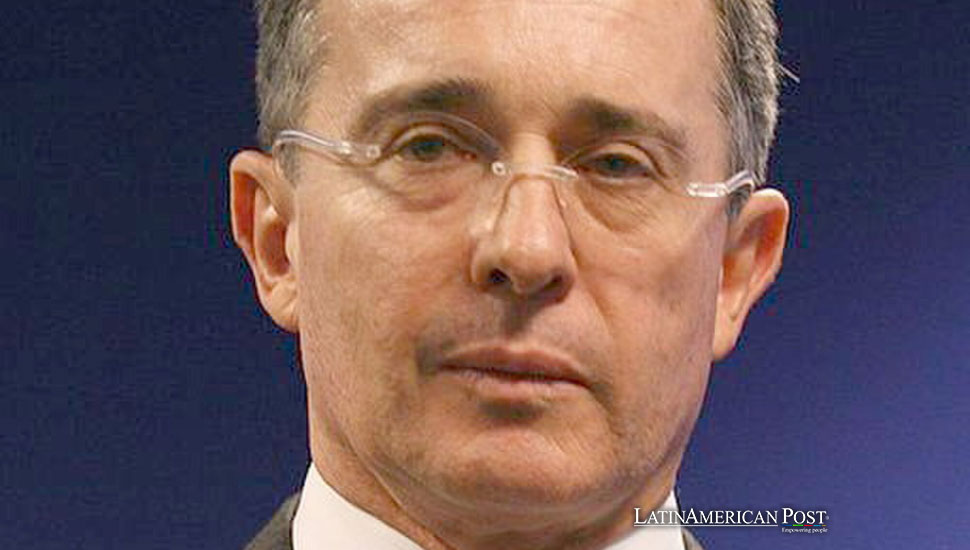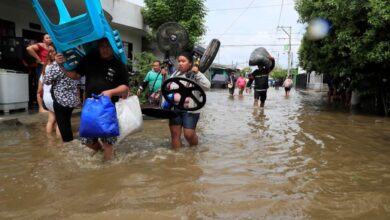Former Colombian President Uribe to Stand Trial

Former Colombian President Alvaro Uribe will face trial for witness tampering and fraud, marking a significant chapter in the nation’s judicial history. This development underlines the ongoing legal and political saga, resonating across Latin America with implications for democratic institutions and the rule of law.
In a move that has sent ripples through Colombia and beyond, the attorney general’s office has formally accused former President Alvaro Uribe of witness tampering and fraud, setting the stage for a trial that promises to be one of the most closely watched in Latin American history. Uribe, a polarizing figure, is alleged to have engaged in illegal activities to undermine accusations linking him to right-wing paramilitaries.
Testing Ground for Democracy
Uribe’s trial is not just a legal proceeding; it’s a litmus test for Colombia’s judiciary and a reflection of broader regional dynamics where the intersections of politics, justice, and human rights are increasingly scrutinized. This case transcends national boundaries, echoing across Latin America, where the struggle between political legacy and legal accountability is a recurring theme.
The legal odyssey began when Uribe and his associates were accused of attempting to discredit witnesses who testified about his supposed connections to paramilitary groups. Despite Uribe’s consistent declarations of innocence, the Colombian judiciary has proceeded with the case, leading to this pivotal moment. In October, the Superior Court of Bogota ruled against dismissing the case, pushing it forward to formalizing charges.
The impending trial is a testament to the complexities of Colombia’s political landscape, where the shadows of the past continue to loom large over present-day governance. Both significant security improvements and controversies over human rights and justice marked Uribe’s tenure as president. His trial could potentially unravel a web of political and military alliances, offering a glimpse into the opaque world of Colombian politics and its nexus with paramilitary forces.
Echoes Across Latin America: Regional Repercussions
This judicial event also resonates with the broader Latin American experience, where countries like Brazil, Argentina, and Chile have grappled with the legacy of past leaders and the pursuit of justice. From Brazil’s Operation Car Wash to Argentina’s trials of military dictatorship crimes, the region has a history of contentious legal battles involving high-ranking officials.
The case against Uribe has garnered attention not only for its high-profile defendant but also for the broader implications for Colombia’s legal and political systems. As the trial progresses, it will likely serve as a barometer for the strength and independence of the country’s judicial institutions. The due process and rights of both the accused and the victims are under the international spotlight, emphasizing the importance of transparency and fairness in the legal proceedings.
Amid this legal tumult, Colombia has seen a change in its attorney general, with Luz Adriana Camargo stepping into the role amid political tensions and delays in the succession process. Her tenure will be closely watched, particularly in how she handles this high-stakes trial that has the potential to redefine Colombia’s approach to justice and accountability.
The Democratic Center party, founded by Uribe, has called for respect for due process, asserted his innocence, and placed trust in democratic institutions. This statement underscores the political undercurrents of the trial, where legal judgments are intertwined with electoral politics and public opinion.
Uribe’s trial, therefore, is more than an individual’s confrontation with the law; it’s a narrative about Colombia’s ongoing struggle to reconcile its tumultuous past with a desire for a more transparent and just future. The proceedings will likely influence how Colombians view their political leaders and the integrity of their nation’s institutions.
Implications Across Latin America
Furthermore, this trial has implications for how paramilitary affiliations and actions are addressed and judged in Colombia and across Latin America. Nations across the region are watching closely as many grapple with their histories of political violence and legal redress. The outcome could influence legal and political strategies in countries facing similar issues of reconciling peace with justice, especially in nations transitioning from periods of conflict or authoritarian rule.
As the trial date approaches, Colombia stands at a legal and historical crossroads, potentially setting a precedent for accountability and the rule of law in Latin America. The international community and Colombian citizens await a transparent judicial process that could either reinforce or undermine faith in the country’s democratic institutions.
Also read: Colombian Senate Committee Rejects Petro’s Health Reform
Alvaro Uribe’s trial for witness tampering and fraud encapsulates a broader narrative of political power, legal integrity, and the quest for justice in Colombia and Latin America. The proceedings are not merely about determining the guilt or innocence of a former president but are symbolic of a region’s ongoing journey toward upholding the principles of democracy and the rule of law in the face of complex historical and political legacies.





